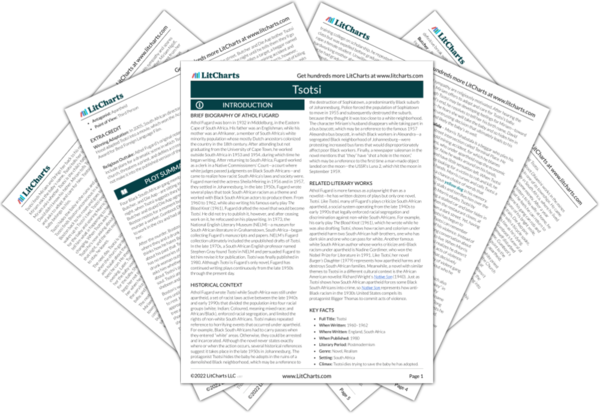Again, the novel associates the yellow dog with Tsotsi’s mother, emphasizing that the yellow dog represents Tsotsi’s separation from his mother—and, by implication, apartheid’s destruction of Black families more generally. As Die Aap was surprised in an earlier chapter that Tsotsi has a mother, so Boston is surprised here, a repetition that underlines how the other gang members don’t see Tsotsi as fully human (after all, as Tsotsi has realized, every human being has a mother).
